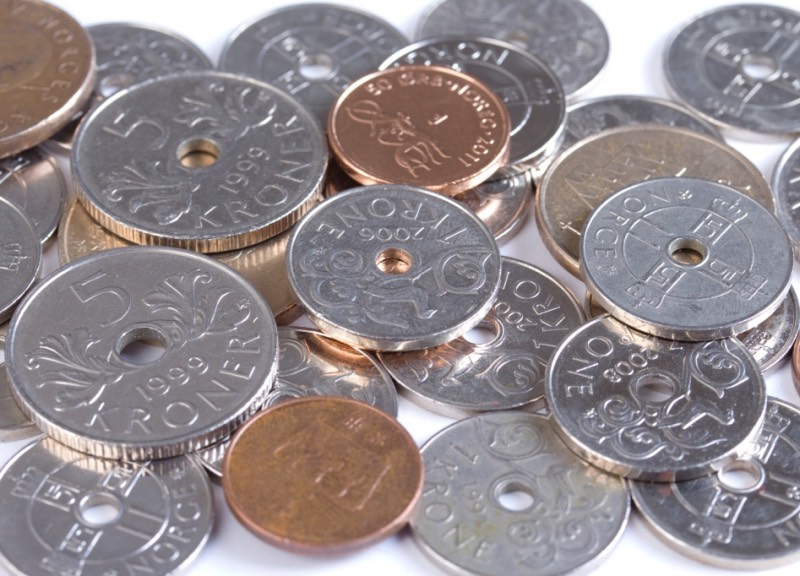Taxes are the price of life in Norway, and everywhere for that matter, but there are many misconceptions. Here is a beginner's guide to how tax works for those living in Norway.
Navigating the tax system in a new country can be one of the most challenging aspects of moving abroad.

For those settling in Norway, understanding how the tax system works is not just a matter of legal compliance—it’s essential for effective financial planning and ensuring that you make the most of the various benefits and deductions available.
Norway's tax system might seem complex at first glance, but with a little guidance, you can gain clarity on how it operates and what it means for your personal finances.
Whether you're an expatriate, a newly arrived worker, or someone considering a move to Norway, having a solid grasp of the tax rules will help you avoid surprises and make informed decisions.
In this article, we’ll explore the different types of taxes you may encounter, including income tax, wealth tax, and VAT, and explain how the Norwegian government uses these funds to maintain the country's high standard of living.
So, whether you're just beginning your journey in Norway or have been living here for some time, this guide will serve as a helpful resource to demystify the Norwegian tax system and ensure you're fully informed about your obligations and opportunities as a taxpayer.
How Norway’s Tax Revenue is Used
Understanding how Norway allocates its tax revenue is important for appreciating the broader societal benefits that come from contributing to the system.

While Norwegian tax rates may initially seem higher than what you might be accustomed to—depending on where you're from—there’s a strong rationale behind this structure that goes beyond mere revenue collection.
Norwegian tax revenues are the backbone of the country’s extensive public sector, which provides a wide array of services that significantly enhance the quality of life for all residents.
The public health system, for example, is one of the most prominent beneficiaries of these funds. With its universal access policy, Norway ensures that every resident has the right to high-quality healthcare, regardless of their financial situation.
This commitment to public welfare extends beyond healthcare to include a robust educational system, where access to quality education is seen as a fundamental right.
The revenue also supports other critical areas such as transport infrastructure, ensuring that the country’s roads, railways, and public transit systems are well maintained. Communication networks, environmental protection, and social services are other key areas where tax money is used.
In addition to funding the public sector, the Norwegian tax system is purposely designed to help promote a more equal society. Simply put, that’s one in which the poor pay less and the wealthy contribute more.
Tax Residency in Norway
Tax residency is a crucial concept in international tax law, as it determines where you are legally obligated to pay taxes. It's not just about where you physically live; it also involves the extent of your financial ties to a particular country.

In Norway, being classified as a tax resident means that you are subject to Norwegian taxation on your global income, not just the income you earn within Norway. This includes any salary, business income, or investments you have, regardless of where they are generated.
However, if you earn income abroad, Norway’s network of double-tax treaties with other countries generally ensures that you are not taxed twice on the same income.
These treaties are designed to prevent double taxation by allowing tax paid in one country to be credited against the tax payable in another.
To determine whether you are a tax resident in Norway, the general rule is straightforward: if you spend more than 183 days (approximately six months) within a calendar year in Norway, you are considered a tax resident. This applies whether the days are consecutive or spread out across the year.
However, the reality of tax residency can be much more complex, especially for those with international ties. If, for example, you own property abroad, have family members residing in another country, or regularly commute across borders for work, your tax situation might not fit neatly into the standard rules.
Given the complexities of international tax law, it is highly advisable to consult a tax expert if you have a complicated financial setup.
National Insurance (Social Security)
When you work and pay tax in Norway, you become a member of the national insurance scheme. You do not become a member if you work temporarily for your foreign employer in Norway.
Membership in Norway's national insurance scheme gives you certain healthcare and welfare benefits, such as unemployment benefits.
A deduction of 8.2% is made for national insurance membership and this amount is taken as part of the salary deduction in Norway. You’ll see the breakdown on your annual tax return.
Income Tax in Norway
For ordinary employees, income tax is deducted from your salary before you receive it, together with social security. The deduction is applied based on your expected salary.

The Norwegian income tax system for individuals is structured around two main tax bases: general income and personal income.
General Income Tax: This is a flat tax applied to all types of taxable income, including earnings from employment, business, and investments. Certain deductions for expenses and losses are allowed. The tax revenue is distributed among county, municipal, and state levels.
Bracket Tax on Personal Income: This is a progressive tax with increasing rates based on income levels. Personal income includes earnings from employment, pensions, self-employment, and certain partnership earnings. The tax rate increases as income rises, with higher incomes subject to higher tax rates.
At the end of the year, you will receive a tax return and in many cases, you won't owe any more taxes. Things get complicated if you claim additional deductions, have underpaid or overpaid text, or are self-employed.
In these cases, you’ll make adjustments to the pre-filled amounts in the tax return. You’ll then get a revised tax assessment a few weeks or months later.
Tax Deduction Rates
Because of the way an individual’s tax deductions work in a progressive way, it’s impossible to give an average expectation. The tax deductions that people in Norway pay can vary significantly depending on their income level, deductions, and specific circumstances.
Norway’s Tax Authority offers a tax calculator that’s free to use and gives you an idea of what your overall tax deduction will be.
For example, on an annual salary of NOK 500,000, an estimated tax deducation of NOK 116,334 will be made over the course of a year. That’s an annual deducation of 23.27%.
On an annual salary of NOK 800,000, an estimated tax deduction of NOK 230,214 will be made over the course of a year. That’s an annual deduction of 28.7%.
Wealth Tax
Unlike many other countries, Norway imposes an additional tax on its wealthiest citizens.

Anyone whose global net wealth exceeds NOK 1.7 million per year will be required to pay the additional tax. At the time of writing, it’s 1% of the net wealth above NOK 1.7 million. This rises to 1.1% on values above NOK 20 million. Read more about Norway’s wealth tax.
Americans should also be aware that they will likely have a tax obligations to their home country even when living in Norway. Read more about tax for Americans in Norway.
The Tax Assessment (Tax Return)
Tax is taxing enough in your home country, but ensuring you’re getting everything right in a foreign country in a foreign language can be a daunting prospect.
Even if your level of Norwegian is advanced, it can still be extremely difficult to grasp the tax concepts in Norway. If you're a foreigner working here, check out our top tips for the tax return.
Sales Tax (VAT / MVA)
MVA (Merverdiavgift), or Value Added Tax (VAT), is a consumption tax applied to most goods and services in Norway. Unlike much of the United States, prices you see in Norway always include MVA.
The standard MVA rate is 25%, with reduced rates of 15% for food and non-alcoholic beverages, and 12% for certain services like public transportation, cinema tickets, and hotel accommodations. Some items are MVA-exempt.
Businesses collect MVA on behalf of the government and can reclaim it on their business-related purchases. MVA is a significant source of revenue for the Norwegian government, helping to fund public services.


I just received a job offer in Oslo, considering that companies must pay a minimum salary of NOK 412,600 if you have a Masters and NOK 382,900 if you have a Bachelors degree, is a base annual salary of NOK 900,000 good to move in with wife and 2 kids? Wife wont be able to work.
Hi Armando, I can’t give you a good answer I’m afraid as it depends entirely on where you want to live, what kind of accommodation you want, and your own personal spending habits. Some families manage on a lot less, others need more – it really does depend on your own personal circumstances.
A bit late to answer, but here goes : If you want a roomy apartment or a house, 900k single income family could be a challenge in Oslo itself (unless you got a big savings account to help you get a good loan in a bank). If you are willing to commute, or can settle for a small apartment, you should be fine.
And as David already made a point of, it depends a lot on your spending habits. You will find that habits which aren’t considered expensive in the US might be in Norway (for example : eating at a restaurant most nights.). Although, at 900k a year, you should be able to afford expensive habits, unless you sink all of it into an expensive living unit.
Hi,
I’m am American, living in the US and in a process of opening a business in Norway, I will not be residing in Norway but I will be the owner. What will be my taxes on profits made in Norway? Thank you
I’m not an expert and you should speak to an accountant about this. But from what I understand from your question, the business will pay business taxes just like any other business in Norway. Your personal tax liability depends on if and how you take money out of the business. If you’re setting up a business in Norway then I assume you already have an accountant engaged, so they will be able to provide a proper answer. If not, then you can obtain quotes from an accountant using this service.
Haha . Me and my wife and a 2 year old kid have in total 400 k and we do live in oslo center . We able to have ok lifes .
Careful there, your free education is showing.
THAT’s funny!
hi, i came here in Norway in last summer(August 2017) with a study permit. I am allowed to work part-time besides my study and i am doing soo.
currently, i am paying zero tax with a ‘free card. but, soon i have to pay around 25% tax with a TAX exemption card.
I just came to know that there is an option of paying 10% tax for the first two years in Norway.
does that apply to me?
thanks in advance.
My dad, a Norwegian citizen who has lived in the US for 60 years, sold his parents’ (both deceased) home in Norway. We never received a bill to pay taxes on income from the sale. The money is sitting in an account in Norway. We aren’t sure what to do – who to pay, if we can take money out of the account, etc. Does anyone have a resource we could use to find out what we need to do? Thank you!
Hi Susie, you definitely need to speak to an expert on this. You can use this service to contact an accountant if you like: https://www.lifeinnorway.net/deals/find-an-accountant/
Hi everybody,
I’m going to start a postdoc position in Norway with salary of about 515000. I would like to know if postdocs in Norway need to pay tax? If yes, how much is the tax rate for such an income.
Thanks in advance and best regards.
Hi
I’m working in Bergen for about 2 months, no more than 3 for the Norwegian minimum wage. Would I pay any tax on this???
Hi, I’ve been offered a remote position for a small US-based non-profit. I live in Norway with my Norwegian spouse. The organization doesn’t want to establish themselves as a tax entity in Norway since I’ll be the only employee. What are my other options for complying with tax law while accepting the position?
>There is a common belief that tax in Norway is sky high and you will turn over up to half of your income to the Government. Unless you are extraordinarily wealthy, that is unlikely to be the case.
I’m having trouble finding what the median or average household pre-tax income is for Norwegians. there’s lots of data about “disposable” income (after-tax) but for some reason they don’t easily disclose data on gross income. hmmm… without this data, it’s difficult to directly compare the tax rates of various nations. particularly given the hidden VAT in Norway (12% on transport, 15% on food, 25% on most other purchases).
taxes are over 40% of GDP in Norway. This would seem to imply that taxes overall are much higher in Norway than in the UK (34%) or the US (247%).
You just answered you own question. Taxes are sky high.
i am an american citizen living in norway. I am over 71 so have to withdraw money from my IRA each year and understand that the withdrawal is taxed in USA. I have gotten mixed messages from a norwegian lawyer about whether I have to pay tax to norway on the earnings. it is hard to get good accounting on ira earnings since only the withdrawal generates a 1099.
any ideas?
1.If I move to Norway from UK as a retired person will my State Pension and Teachers Pension be liable to be taxed in Norway before 31/12/20?
2.What about my savings?
You’ll be taxed when you are a tax resident of Norway – to establish when this is you’ll need to look at the tax treaty between UK and Norway as it comes down to your personal circumstances. But you’ll have to be quick, you will have to have moved and registered by the end of 2020 to take advantage of the EEA residency system. After that date, there’s no way to move here without a work permit.
Hi, I have dual nationality (Norway and UK). I currently pay property tax and wealth tax for property I own in Norway. Would I be a counted as a ‘tax resident’ if I moved there? If so, would I be entitled to health care?
Do you know if being issued a residence permit automatically triggers a tax liability in Norway or do you have to still satisfy the 6 month per year rule?
Thanks!
You should check the tax treaty between Norway and your country of citizenship – this is what defines tax residency. You can find these with a web search.
If I want to work in Norway and I previously had a history of an illness but have been given a green code indicating I no longer need to take medication, am I required to bring a health certificate from a doctor in my home country?